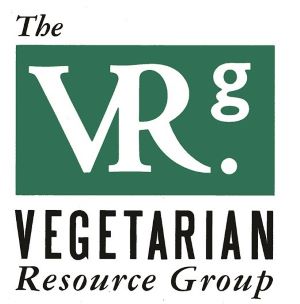Plant-based Diets and Pancreatic Cancer
I wouldn’t blame you if you looked at the title of a recently published study “Plant-based Diets and the Risk of Pancreatic Cancer: A Large Prospective Multi-Center Study” and concluded that this was a study of vegans (1). It was not, however, a study of vegans or of any sort of vegetarians, despite the mention of “plant-based diets” in the article’s title. “Plant-based,” as we’ve discussed on our website and in Vegan Journal (previously Vegetarian Journal), can mean anything from eating lots of plants (but also using animal products), to avoiding red meat, to being vegan. The U.S. Food and Drug Administration (FDA) does not have a legal definition of “plant-based.”
Let’s look at this study’s methods to see who the study subjects were and what led the researchers to indicate that their study was of plant-based diets. First, a bit of history. In 2016, researchers from Harvard University’s School of Public Health published a paper which used information collected from three large studies to examine the association between diet and type 2 diabetes (2). They created three indexes (tools) for evaluating the subjects’ diets.
The first index was an overall plant-based diet index in which plant foods received a positive score and animal products received a negative score. A higher score on this index meant that one was eating more plant foods but did not indicate whether or not they were vegan.
The second index was called a healthful plant-based diet index in which “healthy plant foods” (whole grains, fruits, vegetables, nuts, legumes, vegetable oils, tea/coffee) received positive scores and “less healthy plant foods” (fruit juices, sweetened beverages, refined grains, potatoes, sweets/desserts) and animal foods received negative scores. A higher score on this index meant that one was eating more healthy plant foods but did not indicate whether or not they were vegan.
The third index was called an unhealthful plant-based diet index in which positive scores were assigned to “less healthy plant foods” (fruit juices, sweetened beverages, refined grains, potatoes, sweets/desserts) and negative scores were assigned to “healthy plant foods” (whole grains, fruits, vegetables, nuts, legumes, vegetable oils, tea/coffee) and animal foods. A higher score on this index meant that one was eating more unhealthy plant foods. Again, despite use of “plant-based” the diets being evaluated included animal products.
These tools were used to examine the association between risk of type 2 diabetes and diets with higher scores on the plant-based diet index, the healthful plant-based diet index, and the unhealthful plant-based diet index (1). Since the original study was published, many other studies have used these indices to evaluate the relation between so-called plant-based diets and disease.
The previously mentioned study of “plant-based diets” and pancreatic cancer used these three plant-based indices to evaluate the association between diet and pancreatic cancer (2). More than 100,000 U.S. adults answered questions about which foods they ate and how often they ate them. Subjects were not vegans. They were then followed for an average of almost 9 years to see who would be diagnosed with pancreatic cancer. Those with higher scores on the healthful plant-based diet index had a lower risk of developing pancreatic cancer; those with higher scores on the unhealthful plant-based diet index had a higher risk of developing pancreatic cancer.
These results support the importance of choosing healthful plant foods and limiting use of unhealthful plant foods. They do not allow any conclusions to be made about vegan diets.
References
- Satija A, Bhupathiraju SN, Rimm EB, et al. Plant-based dietary patterns and incidence of type 2 diabetes in US men and women: Results from three prospective cohort studies. PLoS Med. 2016;13(6):e1002039.
- Zhong GC, Li Z, You AJ, Zhu Q, Wang CR, Yang PF. Plant-based diets and the risk of pancreatic cancer: a large prospective multicenter study. Am J Clin Nutr. 2023;117(2):235-242.
To read more about what a plant-based diet means see:
What Does Plant-Based Mean To the Public?
What Does Plant-based Actually Mean?

